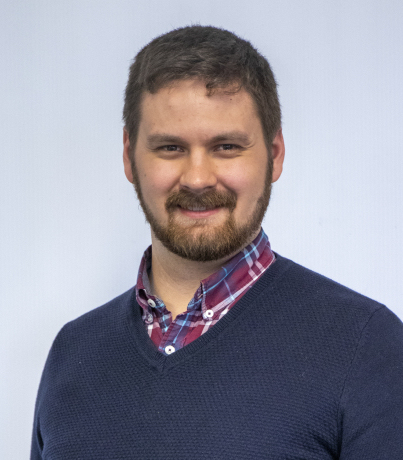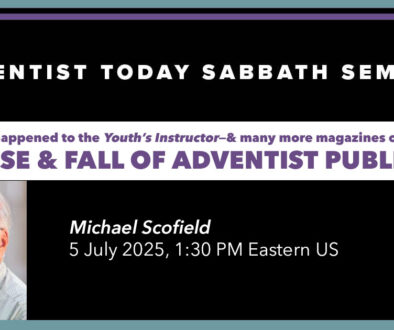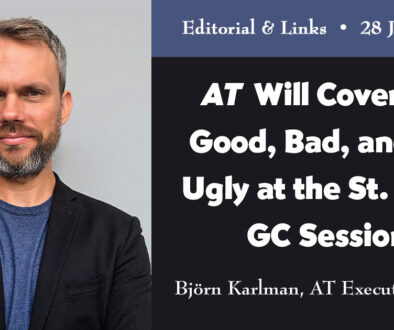The Great Disruption: The 2020 One Project in Boulder
by Ryan Brousson | 9 March 2020 |
The theme of this year’s conference was “The Great Disruption,” with three sub-themes: politics, theology, and church and culture. My overall thoughts were positive. The messages by the nine speakers, most of whom were the founders or long-time speakers, were thought-provoking and insightful. Many questions arose as I listened and thought about what was presented. This review will have two sections. First, I want to give my thoughts on the presentations with a brief summary. I will then give my broader thoughts regarding the One Project as a whole.
Thoughts and Summaries of the Presentations
Alex Bryan presented on the politics of Jesus. His main question was: should I pledge allegiance to my country? His conclusion was that we should support and work for the betterment of the places where we live, but that we need to recognize there is a greater kingdom that calls for our allegiance: the kingdom of God. This point also can be applied to the Adventist church; our allegiance should be to God, not a denomination, even the Remnant Church. God’s kingdom is our first allegiance above any party, politics, or church. God’s kingdom is a dangerous kingdom because it is good and thus stands in stark contrast to the world. As a result, we are to work for the good and benefit of others, even our enemies and those who do not think like we do. What would change if we truly worked for the benefit of everyone?
The second presentation, by Tim Gillespie, focused on scarcity and abundance. As a culture, and even a church, we believe that resources are finite. There is not enough to go around. If you get more of the pie, then that means I do not get as much. This leads to aggression because to get what we need, we must take it by force. Gillespie argues that we need to have a theology of abundance. God is the God of the cattle on a thousand hills and He wants to give us everything He has. This idea of abundance is a revolutionary idea. It goes against secular and religious culture. The question for ourselves is, do we have a theology of scarcity?
Japhet De Oliverira spoke about Jesus being a force for the good. This was Jesus’ whole purpose. He sought after the oppressed and hurting to bring them freedom and healing; people did not like this, then or today. This talk reminded me of a psychologist (Jordan Peterson) who said that, in my words, people fight against those who are good because those who are good are a mirror to the fact that they are not. This is like God’s law being a mirror for ourselves.
Paddy McCoy started the section on theology. This question arose for me: What is the centre of our theology? Is it doctrine or Christ? The Jewish leaders thought they had the “correct” theology and belief, but they failed to see the Origin of that theology in front of them. Another question arising from McCoy’s talk was: can you have a true theology that excludes people, especially when the founder of theology included those who should have been excluded?
Somewhat in answer to the above question, Tacyana Nixon argued that Christ did not come to bring kingdom, but kinship. Kingdom is made up of power, authority, and hierarchy, which results in exclusion. Kinship, on the other hand, consists of community, love, and inclusion. This is what Jesus came to create. He came to bring everyone into His family. So, can love be built on an authoritarian foundation? Hard to think it can.
Andreas Beccai argued that a garnish can either enhance a good dish of food, or make a bad dish look nice but not taste good. He used Luke 11:37-54 where Jesus scolds the Pharisees for reverencing the prophets, beautifying their tombs, and claiming they would not have killed them. Yet Jesus said they acted no different than their ancestors who put the prophets in the ground. We thus need to be careful that we do not put garnish on a bad theological “dish”, but make sure we have a good theological “dish.” An interesting but apt metaphor.
The final set of presentations started with Lisa Clark Diller speaking on broken bodies, or disability. She argued that our society, and church, assumes everyone can contribute at max capacity. However, this is not the case; people have broken bodies. We need to stop looking at the perfect form of a person, the “real” platonic self, and instead look at the true corporeal nature of our reality. This corporeal nature Christ took on Himself: a particular, limited, body. We all have limits; we thus need to give space and grace when working with people.
Iki Taimi spoke about the qualifications (barriers) we place on those wanting to come into the church. We build our organizations with “belonging” criteria. We create walls that keep people from entering the kingdom. These walls are based on scarcity. Our job is not to make sure God has enough to go around. We are to open the gates wide and bring people in, any and all who want to enter. People leave the church not because of theology, but because they do not feel love and acceptance. Christ broke down the walls that the religious leaders of His day created. He accepted the worst of the worst, even those who had wrong theology.
Sam Leonor gave the last presentation of the conference. He argued that the church should be ekklesia, a community, and not Church Inc, the organization (though organization is important). Church is to be a community of contrast with the culture around it. He then gave reasons to be in church, ekklesia: The church is the best witness of the power of the gospel. Human nature pushes away from community, church brings us together. Church is a place to learn how to differ graciously. It teaches us things we can only learn in community, and evil is best confronted with corporate good. Leonor argues we need to create this ekklesia, community, in our churches, even if we disagree.
My Thoughts on the One Project Overall
The One Project has been clouded in controversy for most of its history. Some have claimed that the One Project is bringing in the emerging church, liberalism, LGBTQ+, or a host of other related ideas and theologies. Not to mention the devilish “rock” music. Then there is the supposed criticism of the Adventist Church organization. Not having gone to previous sessions, I cannot speak regarding the theological direction of the Project in times past or how they related to the criticisms. Though it is interesting that much of the criticism has come from those who have not spoken directly to the organizers of the conference. All I can do is comment on what the Project looks like now.
From what I saw in Boulder CO, the Project is not what those from Fulcrum7 or ADvindicate suggest. I would place myself in the conservative arm of the church, yet all I saw were people who wanted Christ and the transforming power of the Holy Spirit in their lives.
There was “criticism” of the organized church, so on the surface this charge appears correct; but Christ “criticized” the organized church in His day as well, as did Paul and the other disciples. So to say that because you criticize something you are against it does not stack up. On this point, however, one thing I would have liked to see at the Project is some time to discuss practical ways forward. The majority of the time was spent looking at the problems, little time on solutions. Part of this could be that there were no longer the table talks from previous sessions. I would like to see these come back for upcoming sessions.
As I listened to the speakers, I heard appeals for a more Christ-centred, loving, and inclusive church. I did not get the sense from the speakers that this means anything goes. Or that we should leave the Adventist church. Many of the speakers said that they loved their church. The facilitator of the Q&A session even commented that she is a part of the Adventist church because she feels it is the closest to biblical truth. There was no desire from the group to destroy the Adventist church. But there was a desire to transform it. Which is what Jesus, Paul, and the disciples tried to do with the church of their day.
We are told to look at and to desire the fruits of the Spirit (love, joy, peace, forbearance, kindness, goodness, faithfulness, gentleness and self-control). Observing the Project and those who oppose it, I see good fruits coming from the Project and the fruits of the Spirit there as well. Even when people disagreed with each other, I did not see a vindictive or judgemental attitude. I saw a love and desire to build bridges, to include people in community. As Ellen White says, err on the side of love, not on the side of severity. (Education, 294-295)
Some Questions
I question things. According to the Four Tendencies personality assessment I am a Questioner. So here are some questions stemming from the One Project: How do we live together while having different views and theologies? The opponents of the Project appear to want to remove anything and everything that they feel is unbiblical. This does not seem to align with the parable of the tares and the wheat. They remained together until the harvest. What does Christ require of us? The answer seems to be to Love God and love others. It doesn’t seem to be a perfect set of doctrinal statements, though correct theology is important.
Should our view of theology be static or dynamic? As Adventists we have the concept of present truth. Those who oppose the Project seem to confine this present truth to the 19th century and early Adventism.
Can we disagree on something and still be a part of the same church? I think so. Paul and the early Christians never wanted to leave the Jewish faith, yet the old guard forced them out.
Conclusion
My concluding thought is that the One Project is a good ministry. Does it have everything right? No, but neither does any other ministry or person. Could they improve? Yes, just like everyone. The Project is full of people who want Christ to change them and the church of which they are a part. For those who may have questions about the One Project, talk to those who lead out or attend. Don’t make assumptions about people. And if you still disagree with them, that is okay; God calls us to love everyone, even those with whom we disagree. And remember, Christ was the Great Disruptor.
 Ryan Brousson is working on a PhD in systematic theology, with a focus on Adventist soteriological issues. He’s also the Young Adult Ministry Coordinator at Oakridge Adventist Church in Vancouver BC, Canada.
Ryan Brousson is working on a PhD in systematic theology, with a focus on Adventist soteriological issues. He’s also the Young Adult Ministry Coordinator at Oakridge Adventist Church in Vancouver BC, Canada.




